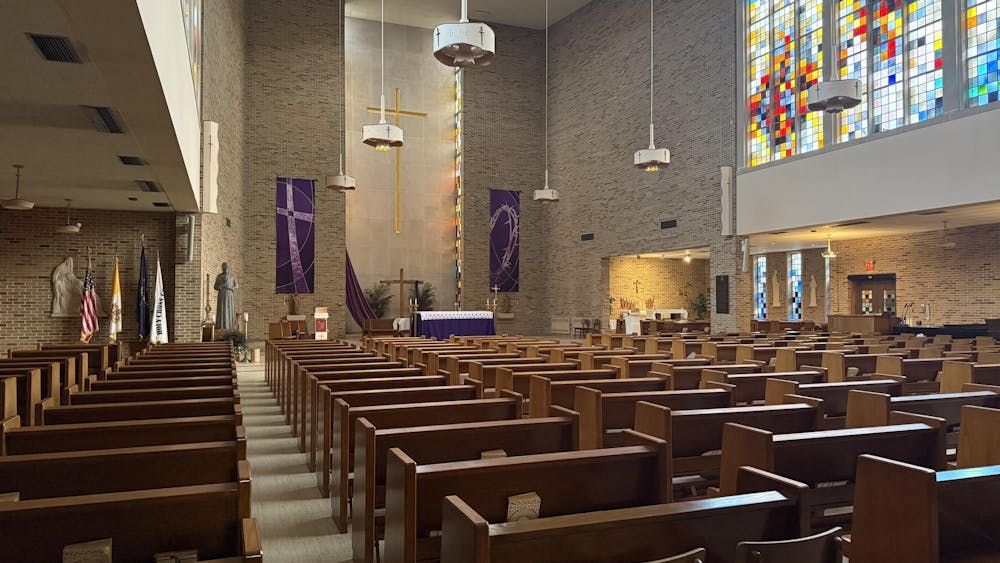Dr. Zuhdi Jasser, president of American Forum for Democracy, addressed the question of Islamism and combating the Islamist establishment in a Monday lecture hosted by the Young Americans for Freedom and Notre Dame College Republicans.
Islam is often viewed through the lens of terrorism, but, for Jasser, this explanation is insufficient because it fogs the narrative of what is happening within the Muslim community, Jasser said. 
“If we simply treat the symptom of terrorism, we’re not going to get anywhere,” Jasser said. “We’ll continue this sort of ‘whack-a-mole’ program that does not deal with the central problem.”
Jasser said the Islamist establishment is the root cause of the issues Muslims and Islam face.
“There are always two parties — the party of the past and the party of the future; the establishment and the movement,” Jasser said, evoking a quote from Ralph Waldo Emerson.
The Islamic Establishment is mostly outside of the United States, and unlike Christianity throughout Europe in the 17th century, there has been no revolution within Islam, Jasser said. As a result, Jasser said, there is often a disconnect between the lay Muslim community in America and the Muslim leadership who are often Islamist in ideology.
“What radicalizes the militants [is the establishment] telling them that they would die for the Islamic state,” Jasser said. “What inoculated [Jasser] against radicalization, was the belief that the only thing [Jasser] ever want[s] to die for is the United States, a country built on a constitution that separated mosque, or church and state.”
Jasser noted that Iran has the largest rate of people converting to atheism due to the fact that the people do not want to be governed by a theocracy. Thus, he suggests that in order to combat radicalization, there is a need to separate mosque and state in Islamic nations, and the only way to do this is through a period of revolution.
In 2011, many Arab nations experienced revolution, in what has become known as the Arab Spring, and Jasser believes these movements have changed the entire narrative.
“What changed with the revolutions is that, for so long in the 20th century we thought that the Middle East and Muslim consciousness was inextricably wedded to being either theocracts or being under military dictatorship,” Jasser said. ”Ultimately the revolutions began a process of modernization.”
Though revolution may be difficult and painful, it is an important ingredient for a nation’s evolution, Jasser said, as for over 30 years in the 17th century, western European nations were involved in wars against theocracies. Today, Jasser suggests, Islam is going through a similar transformation.
But, the war against radicalization cannot be won through military action. Instead, Jasser suggested the United States and other Western nations must begin the campaign by countering the ideology.
“The main laboratory where we can do reform and renewal is in the West,” he said. “It is time for us to take the offense against these guys ideologically. We’re not going to win this war militarily.”
Expert discusses strategy for countering Islamist radicalism
Rosie LoVoi | The Observer
Dr. Zuhdi Jasser, president of American Forum for Democracy, speaks at a lecture Monday. Jasser spoke about countering radicalization in the Muslim world, focusing on the role of the ‘Islamist Establishment’









